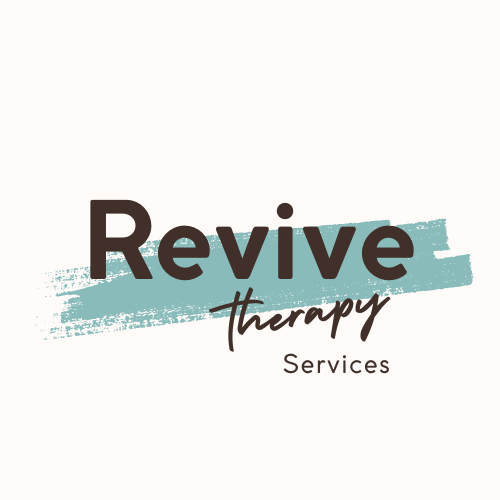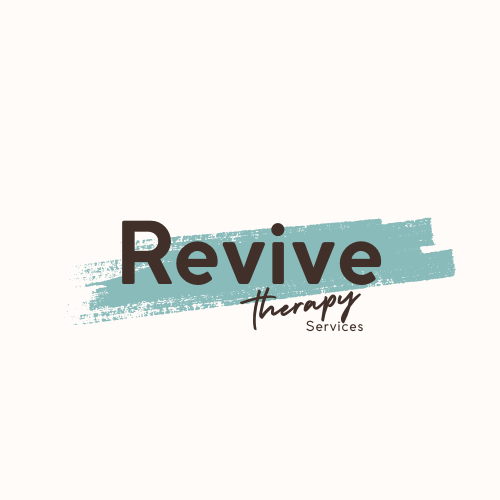
Highly Sensitive People (HSP)
Therapy that helps HSPs live fully in Philadelphia & Colorado
Have You Ever Been Told You're Too Emotional?
Do you feel like other people don’t truly understand how deeply you feel emotions?
Have you noticed you’re easily impacted by others’ emotions?
Do you feel overwhelmed by sensory input?
IIf you answered yes to any of the previous questions, you might be a Highly Sensitive Person (HSP). But what exactly does that mean?
Highly Sensitive People (HSPs) are individuals with a nervous system that is more responsive to stimuli, making them acutely aware of their environment and the emotions of others. HSPs make up about 15–20% of the population. This heightened sensitivity can show up in many ways: becoming easily overwhelmed by noise, bright lights, or strong smells, or deeply feeling the energy and emotions of those around you.
Being Highly Sensitive Is Not a Flaw
While HSPs may face unique challenges, sensitivity also comes with incredible strengths. HSPs often have:
Deep empathy and emotional understanding
Creative and intuitive thinking
A keen eye for detail and subtleties
A unique perspective on the world
Common Traits of Highly Sensitive People
1. Emotional Intensity
HSPs experience emotions more deeply, whether it’s joy, sadness, or empathy for others. Movies, books, music, and everyday experiences may move you profoundly.
2. Overwhelm in Stimulating Environments
Crowds, loud noises, or chaotic settings can quickly overwhelm your nervous system. Quiet, calm spaces allow you to recharge and process your experiences.
3. Heightened Sensitivity to Criticism
Criticism can feel sharper and linger longer. HSPs value harmony and often strive to please others, making self-compassion essential.
4. Attention to Detail
You notice subtle changes and non-verbal cues that others might miss. This extends to aesthetics, art, and the beauty in everyday life.
5. Deep Reflection and Introspection
HSPs often have a rich inner world. Journaling, meditation, or creative outlets help process thoughts and emotions.
6. Empathy and Compassion
You genuinely care about others and often offer support to friends, family, and colleagues. Your ability to connect emotionally is a major strength.
7. Need for Solitude
Alone time is essential to recharge and regain balance. Nature, quiet activities, or simply time to reflect helps maintain your emotional well-being.
Embrace Your Sensitivity
Being highly sensitive is a unique aspect of who you are, not something to hide or minimize. Understanding your sensitivity allows you to navigate life with greater self-awareness, emotional regulation, and self-care.
At Revive Therapy Services in Pennsylvania, we offer therapy for highly sensitive individuals, helping HSPs manage overwhelm, navigate relationships, and harness their unique strengths for a fulfilling, balanced life.
Understanding Your Sensitivity
At Revive Therapy Services in Pennsylvania, we believe that truly understanding and embracing your sensitivity is key to living a fulfilling, empowered life. Our experienced therapists specialize in supporting highly sensitive individuals (HSPs), helping you navigate challenges while harnessing the strengths that come with your unique sensitivity.
Our Holistic Approach
We take a holistic, individualized approach to therapy, addressing your mind, body, and spirit. By integrating multiple therapeutic modalities, we create a personalized treatment plan designed to meet your goals and support your emotional well-being.
Individual Therapy
In one-on-one sessions, you’ll explore your thoughts, emotions, and experiences in a safe, supportive environment. Our therapists help you develop coping strategies to manage overwhelm, set healthy boundaries, and cultivate self-compassion.
Mindfulness and Self-Care
Self-care is essential for HSPs to thrive. Our therapists guide you in developing mindfulness practices that keep you grounded and present, while also exploring self-care techniques that nurture your sensitive nature and promote emotional wellness.
Emotional Regulation
Managing intense emotions can feel challenging for highly sensitive individuals. Using tools from Dialectical Behavior Therapy (DBT), our therapists help you identify, express, and regulate your emotions effectively. These skills improve your ability to navigate relationships and communicate your needs confidently.
Energy Management
HSPs often absorb the energy of others, which can lead to emotional exhaustion. We teach strategies to protect and manage your energy, helping you maintain balance, resilience, and emotional stability in daily life.
Self-Discovery and Empowerment
Your sensitivity is not a weakness—it’s a strength. Through self-discovery exercises and empowering conversations, our therapists help you embrace your gifts, enhance relationships, pursue passions, and live a more authentic, fulfilling life.
At Revive Therapy Services, we provide therapy for highly sensitive people in Pennsylvania, both in-person and online, so you can access compassionate, personalized care in the way that works best for you.
“Highly sensitive beings suffer more but they also love harder……dream wider and experience deeper horizons and bliss. When you’re sensitive, you’re alive in every sense of the word in this wildly beautiful world. Sensitivity is your strength. Keep soaking in the light and spreading it to others.”
- Victoria Erickson
Philadelphia Therapy for Highly Sensitive People Experiencing Trauma
Trauma is a profound and complex experience with far-reaching effects. For highly sensitive people (HSPs)—who naturally experience emotions and environmental stimuli more intensely—trauma can have an amplified impact on their well-being. Understanding how trauma interacts with heightened sensitivity is essential for providing effective support and healing.
Highly sensitive individuals have a nervous system that processes stimuli deeply. This heightened sensitivity means that trauma can affect them more intensely, influencing their mental, emotional, and physical health. Here are some key ways trauma intersects with sensitivity:
1. Hypervigilance and Sensory Overload
HSPs may experience hypervigilance, a heightened state of alertness and constant scanning for potential threats. Trauma can intensify this state, leading to sensory overload and increased sensitivity to triggers such as loud noises, crowded spaces, or chaotic environments.
2. Emotional Intensity and Reactivity
Highly sensitive individuals naturally feel emotions deeply. Trauma can magnify this intensity, making emotional regulation more difficult. HSPs may experience heightened anxiety, depression, mood swings, or emotional dysregulation as a result of traumatic experiences.
3. Empathy and Vicarious Trauma
HSPs often have a strong capacity for empathy, absorbing the emotions and experiences of others. This can make them more vulnerable to vicarious trauma, experiencing distress and emotional turmoil from witnessing or hearing about traumatic events affecting others.
4. Sensitivity to Triggers and Flashbacks
Trauma can create triggers that elicit distressing memories or sensations. Highly sensitive individuals may respond more strongly to these triggers, experiencing flashbacks, intrusive thoughts, nightmares, or physical reactions like panic attacks.
At Revive Therapy Services in Philadelphia, our therapists specialize in supporting highly sensitive people who have experienced trauma. We provide evidence-based approaches, including EMDR therapy, somatic therapy, and online therapy, to help HSPs process trauma safely, manage triggers, and build resilience.
“Highly sensitive beings suffer more but they also love harder, dream wider, and experience deeper horizons and bliss. When you’re sensitive, you’re alive in every sense of the word in this wildly beautiful world. Sensitivity is your strength. Keep soaking in the light and spreading it to others.”
- Victoria Erickson— Quote Source
Navigating Therapy and Growth as a Highly Sensitive Person in Philadelphia
Healing from trauma is a deeply personal and complex journey, and highly sensitive people (HSPs) may face unique challenges along the way. Understanding these challenges is essential for creating a supportive and effective therapeutic environment.
1. Overwhelm and Re-Traumatization
HSPs can become easily overwhelmed during therapy or when discussing traumatic experiences. Their heightened sensitivity to emotions and stimuli may make it difficult to engage fully in therapeutic work without feeling re-traumatized. At Revive Therapy Services in Philadelphia, our therapists create a safe, regulated environment and provide coping strategies to help HSPs manage overwhelm and engage effectively in healing.
2. Self-Criticism and Shame
Highly sensitive individuals often have a rich inner world and a tendency toward self-reflection. After trauma, this can lead to intense self-blame, guilt, and shame, which may impede the healing process. Our therapists emphasize self-compassion and self-acceptance, helping HSPs move past self-critical patterns and foster emotional resilience.
3. Sensory Sensitivities and Dissociation
Trauma can heighten sensory sensitivities in HSPs, making certain therapeutic interventions challenging. Additionally, dissociation may arise as a coping mechanism, complicating therapy. Our Philadelphia-based therapists adapt interventions to accommodate sensory sensitivities and teach grounding techniques to help HSPs remain present and engaged in therapy.
“Highly sensitive people learned early in life to try to control the external world as a way to attempt to manage their inner one.”
― Sheryl Paul
Start Therapy for Highly Sensitive People (HSPs) in Pennsylvania Today
If you’re tired of feeling overwhelmed by intense emotions, it’s time to turn your sensitivity into a strength. Society often tells highly sensitive people that their emotions are “too much” or that something is wrong with them—but that couldn’t be further from the truth. Your emotions are a gift, and with the right guidance, you can learn to manage them effectively and live a more balanced, empowered life.
At Revive Therapy Services in Pennsylvania, you’ll work with experienced trauma and EMDR therapists who understand the unique challenges of highly sensitive individuals. Our personalized approach helps you gain control over your emotions, develop coping strategies, and harness your sensitivity as a superpower.
Getting started is simple:
Contact Revive Therapy to schedule your free consultation
Meet your HSP therapist, Salima Shah and Mary Shay
Begin learning how to manage your emotions and thrive as a highly sensitive person
With therapy for HSPs in Pennsylvania, you can finally feel supported, understood, and equipped to turn your sensitivity into a source of strength.
Other Services at Revive Therapy
Seeking therapy support is a courageous and important step—you deserve a safe space to process life events and work toward your goals in a healthy, sustainable way. Whether this is your first time in therapy or you’ve been here before, Revive Therapy in Pennsylvania is here to support you every step of the way.
In addition to HSP therapy, we offer a range of services to meet your unique needs:
Somatic Therapy for mind-body healing
Ketamine-Assisted Therapy (KAP) for treatment-resistant depression and trauma
Additionally, all services are offered in-person or online in Pennsylvania. We are 100% ready to take this leap with you to create a better and more fulfilling life!




